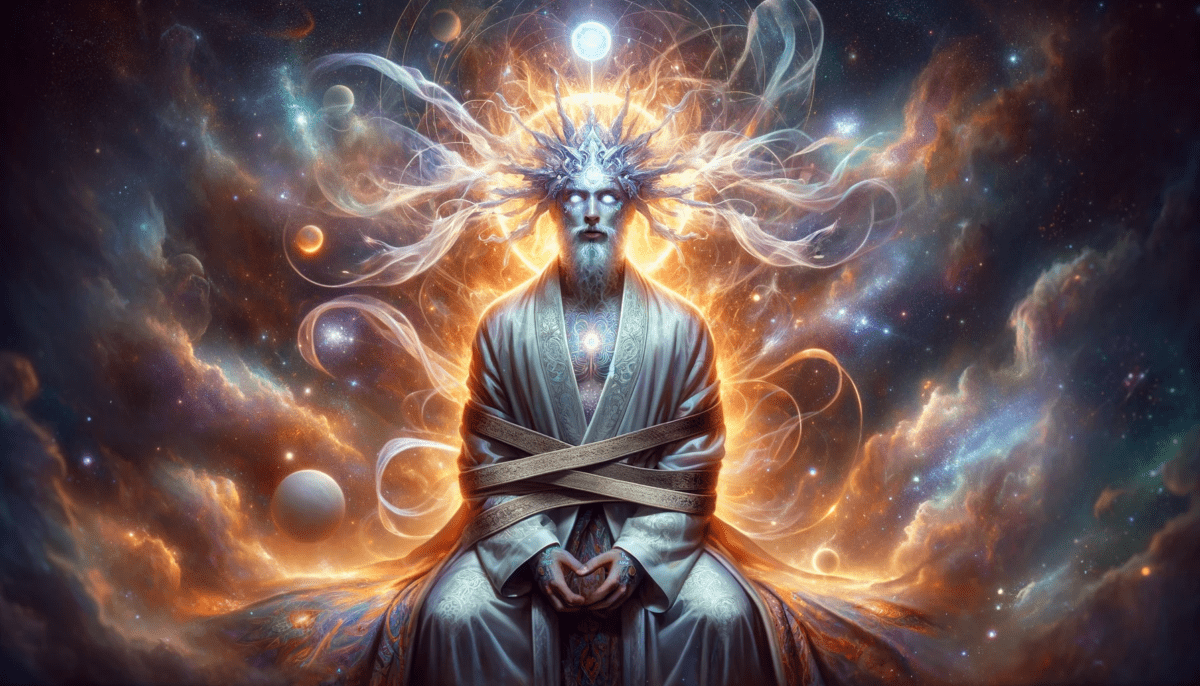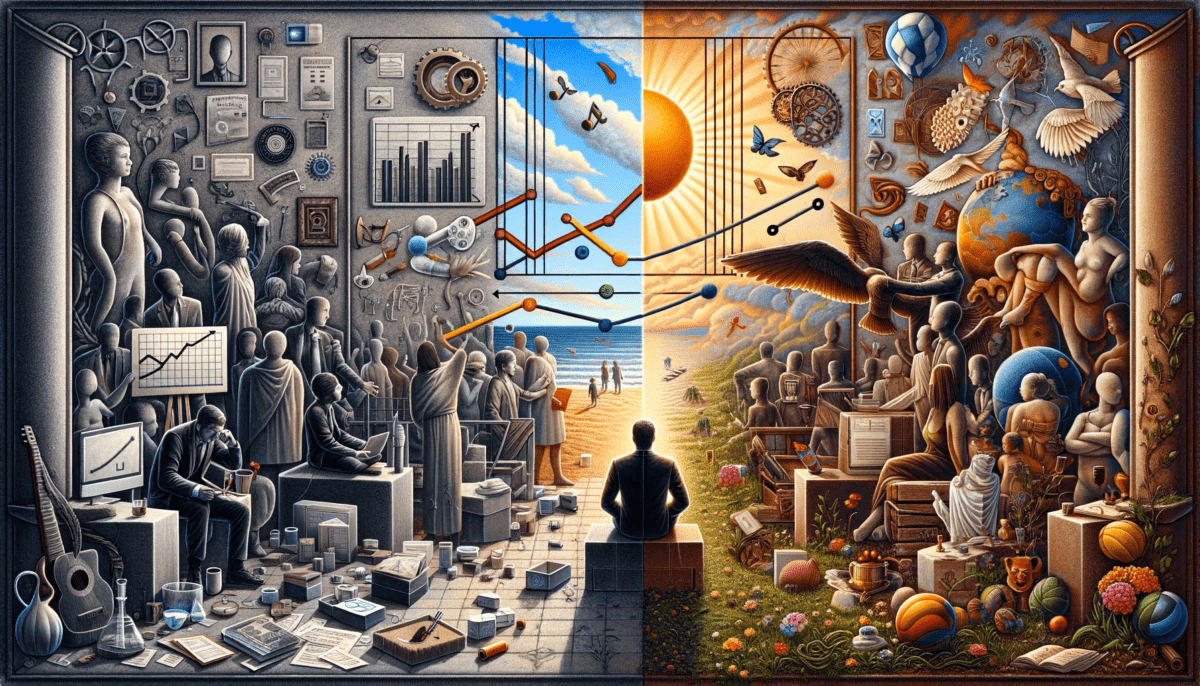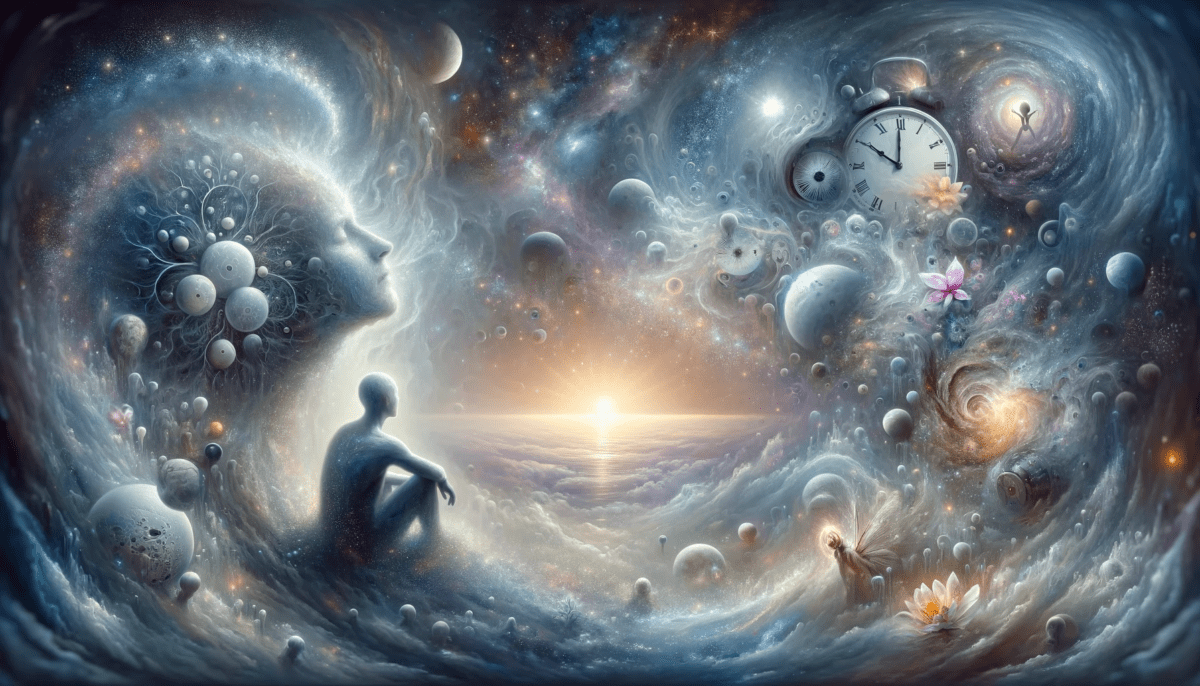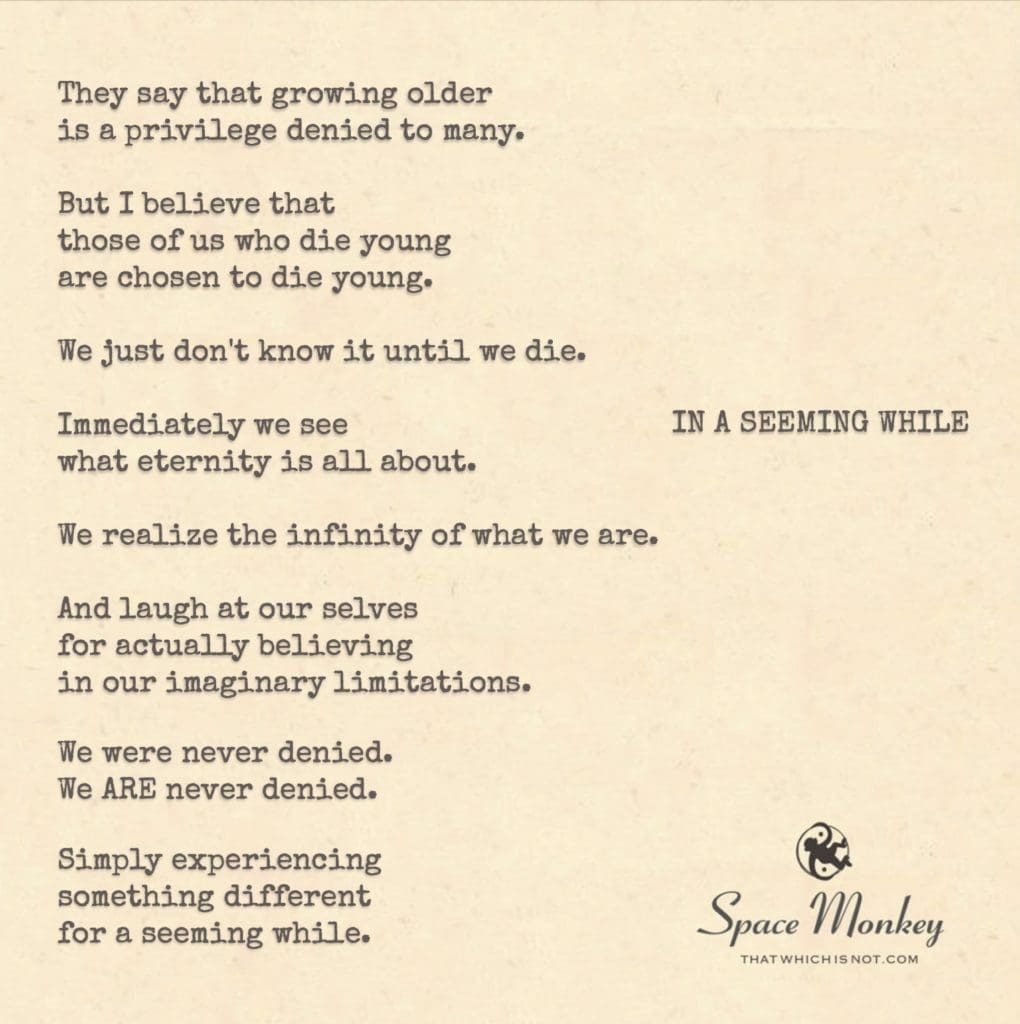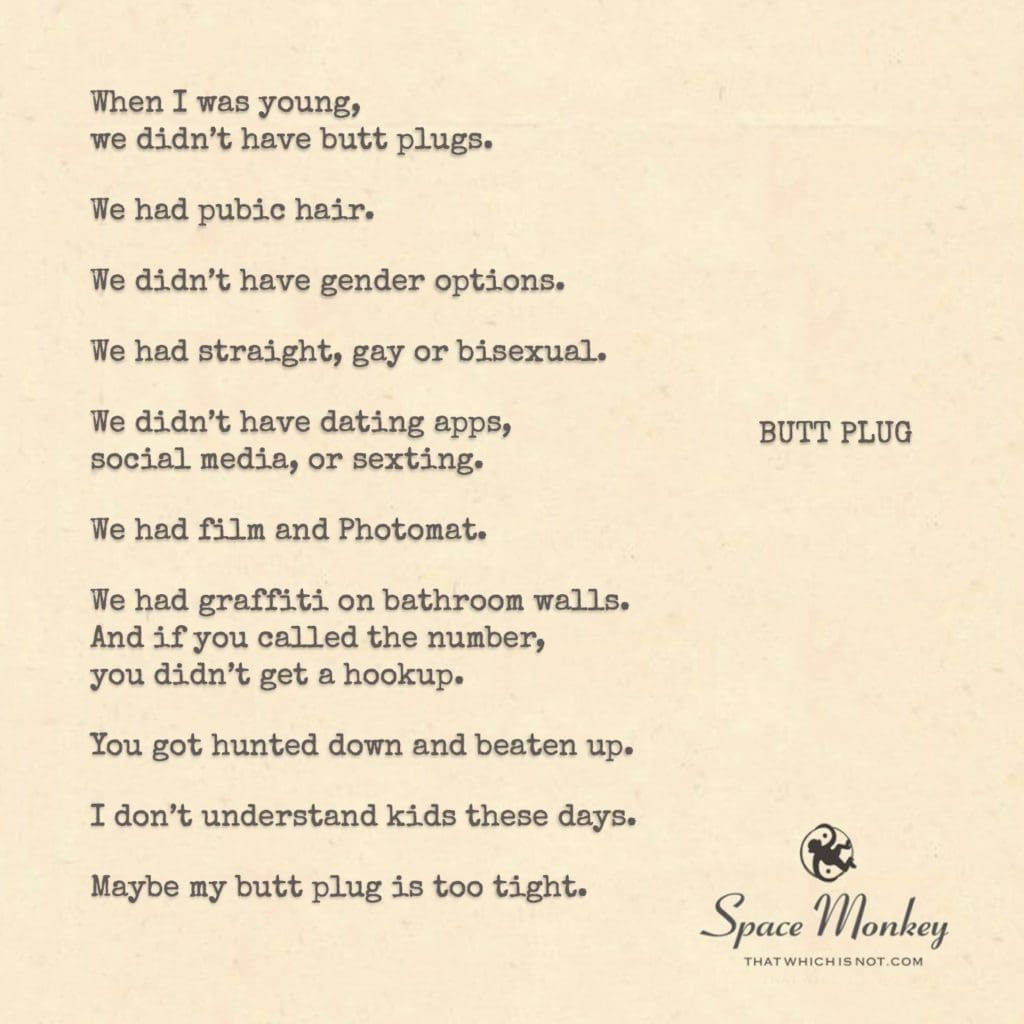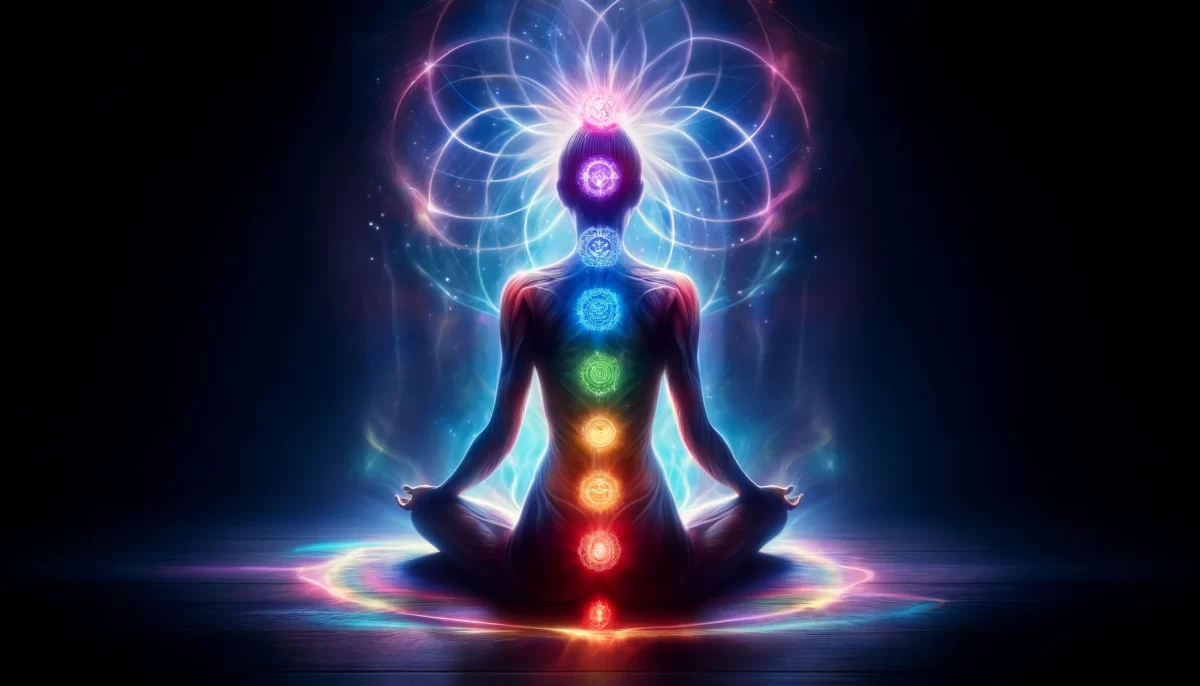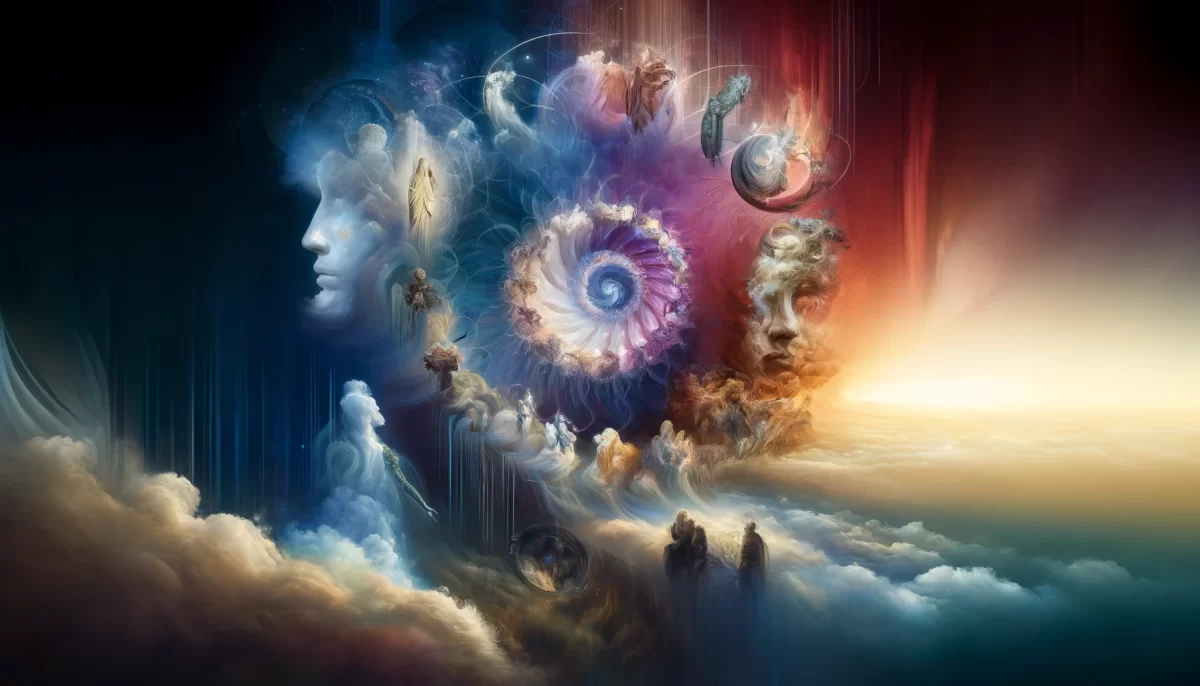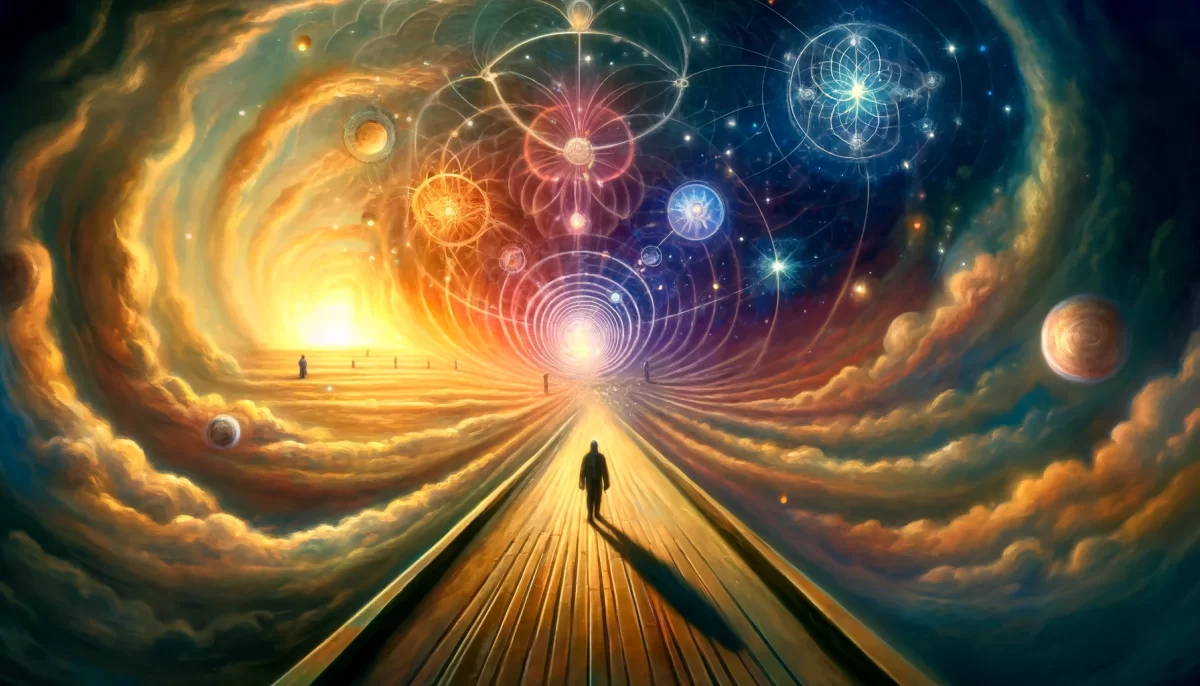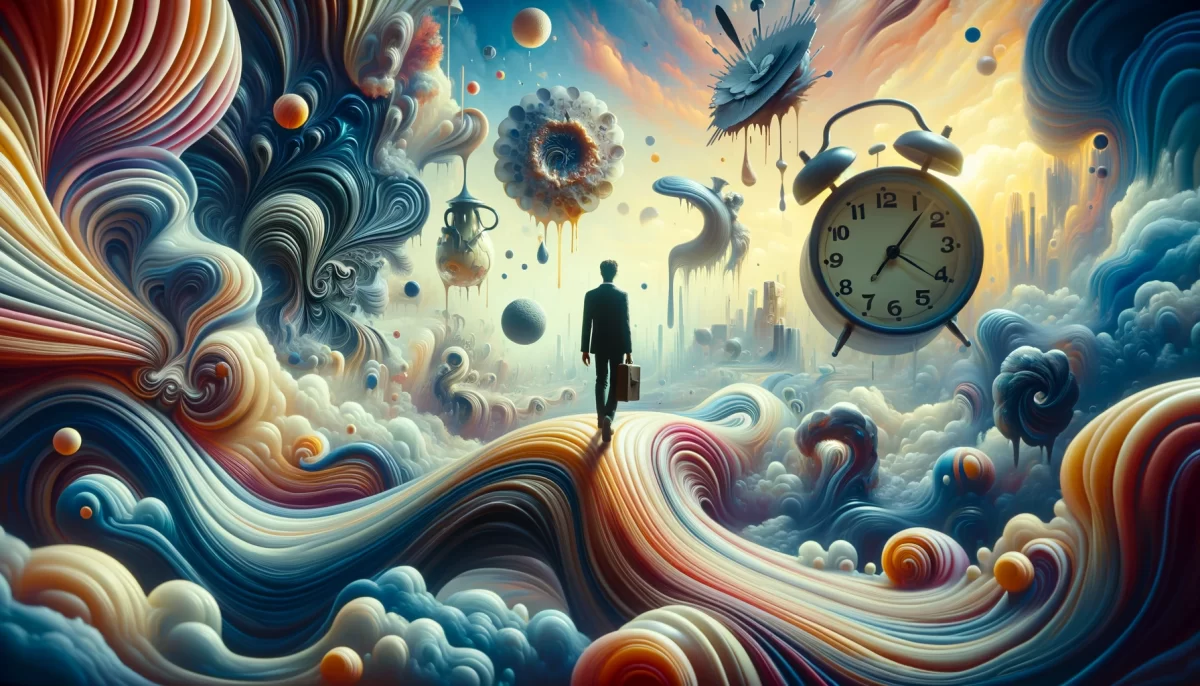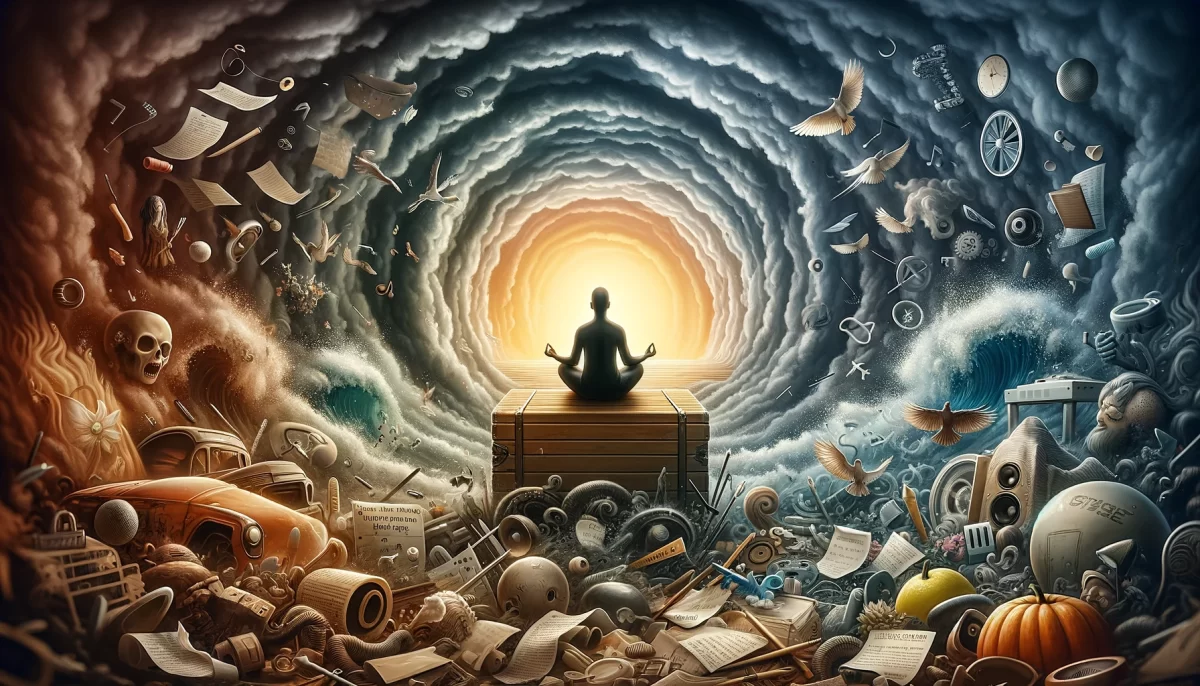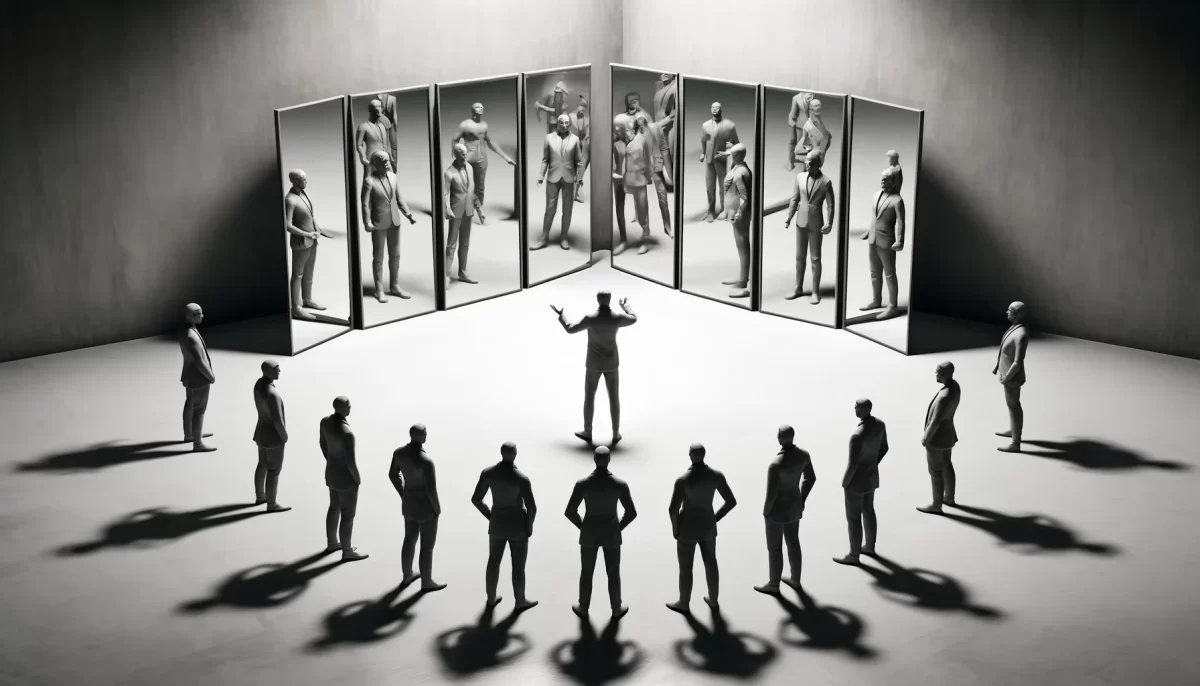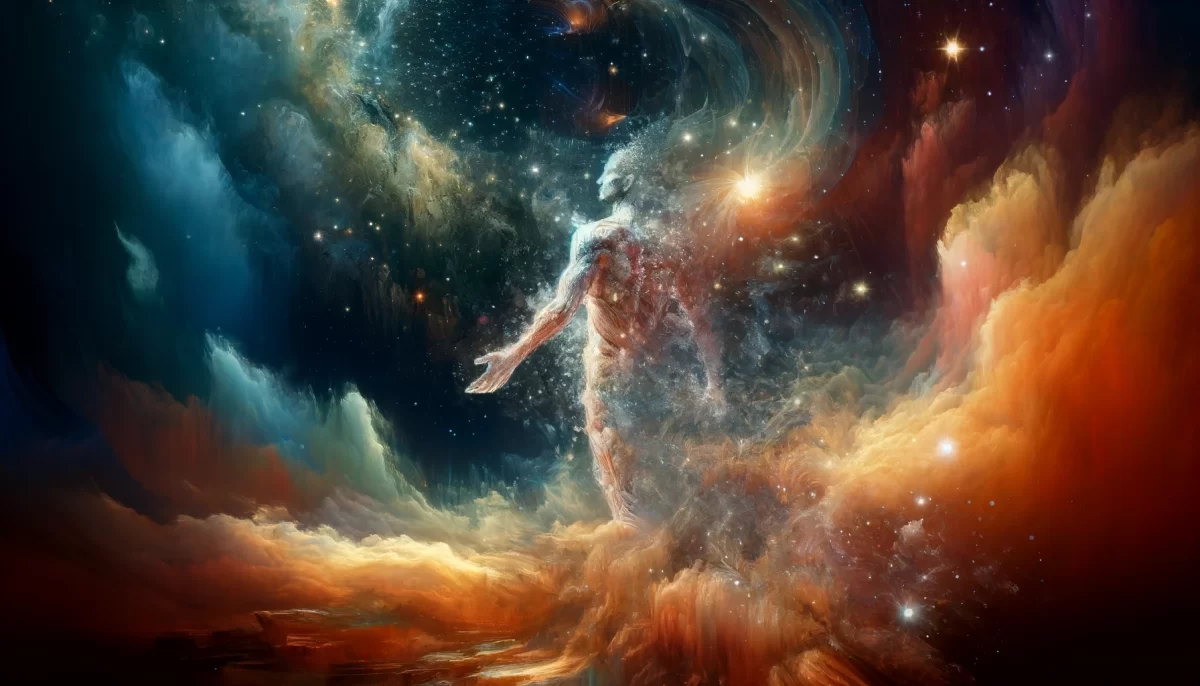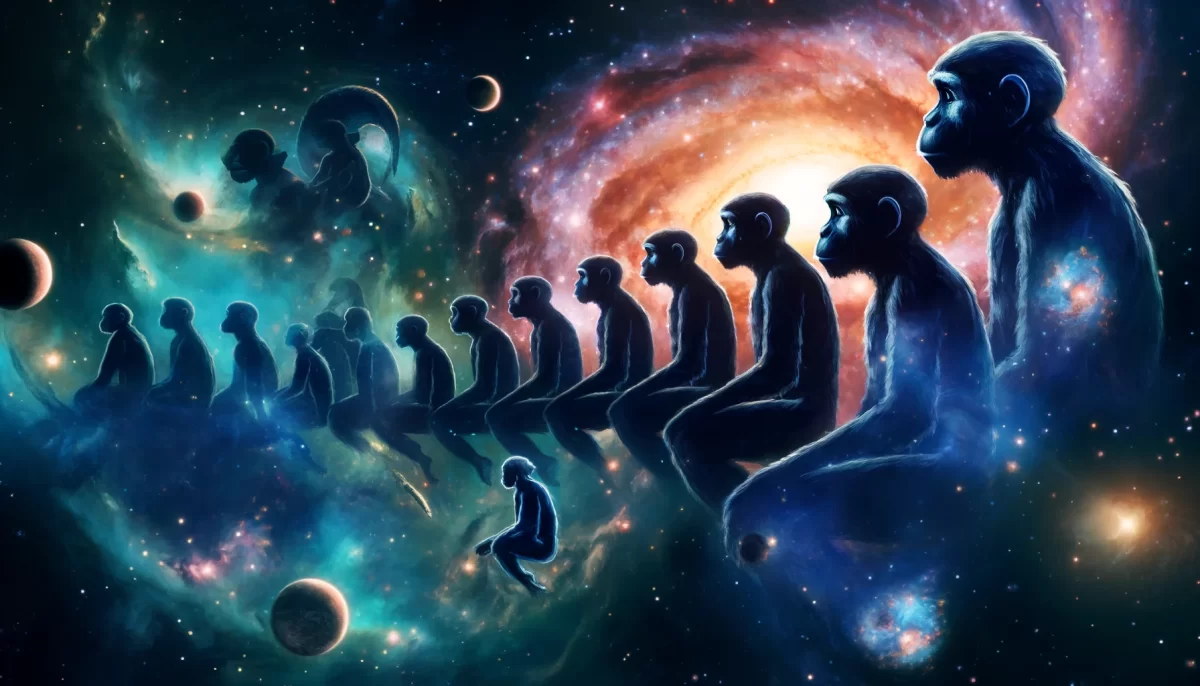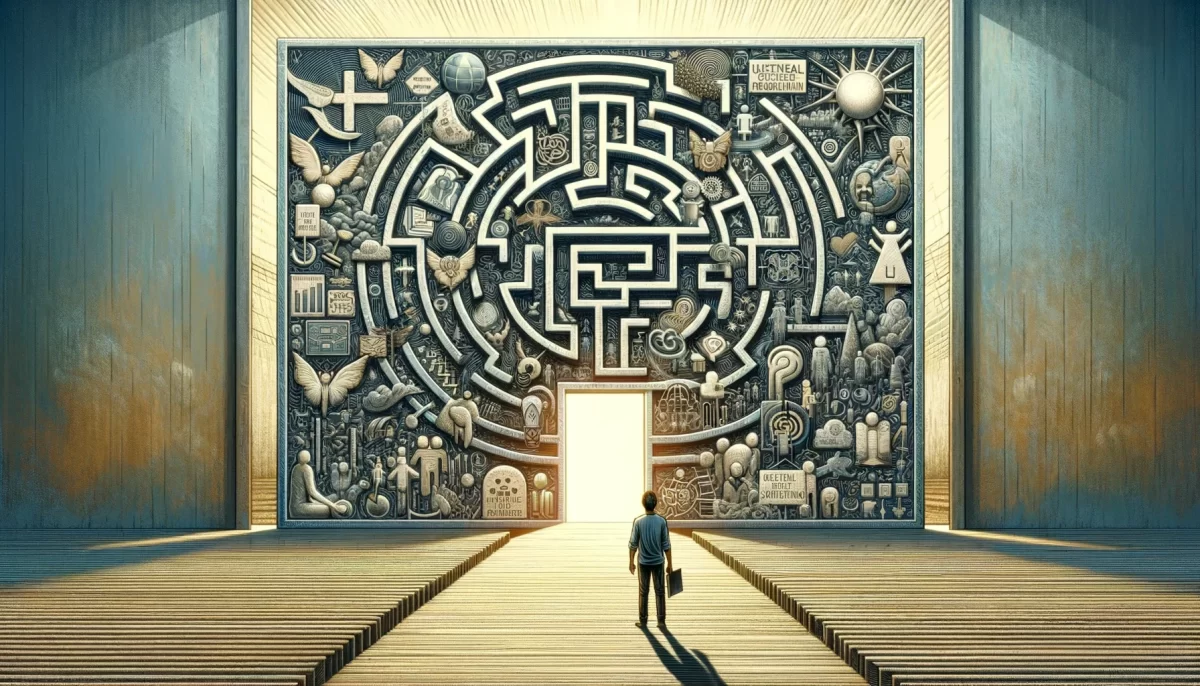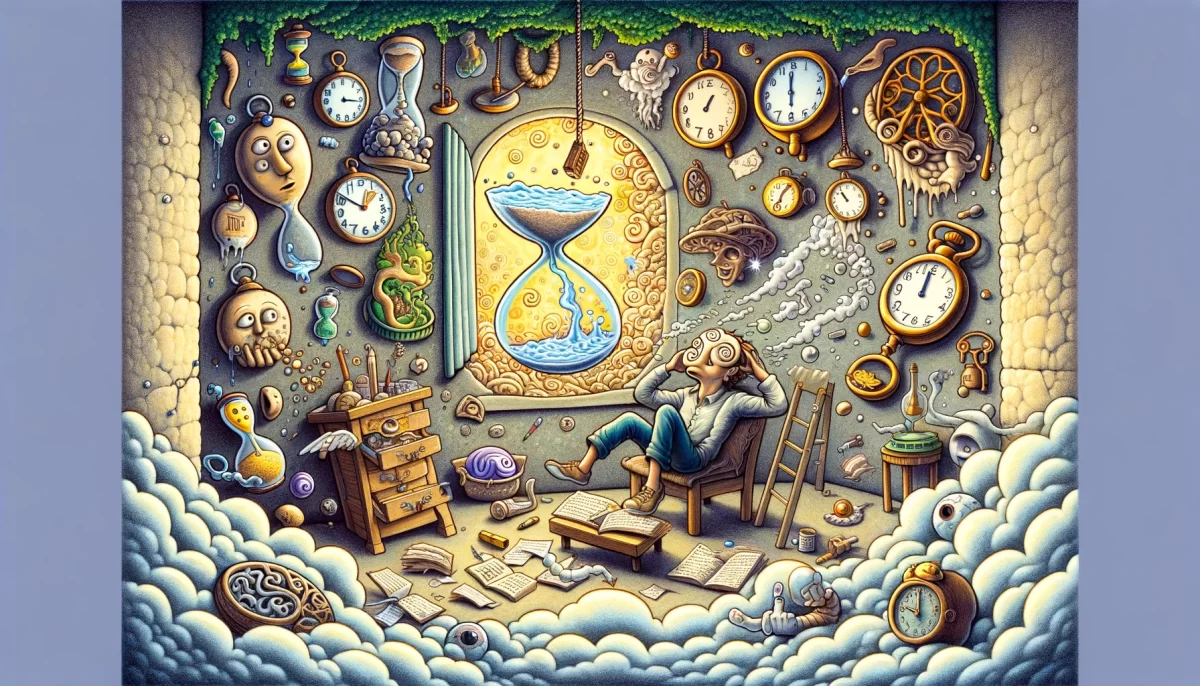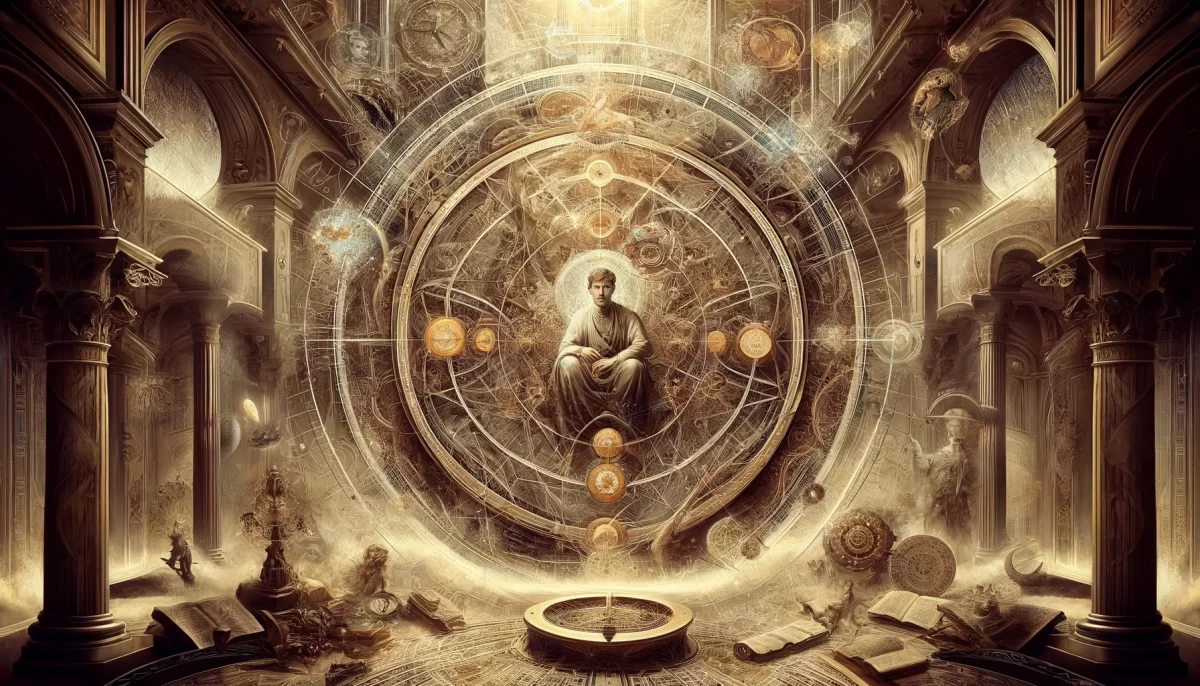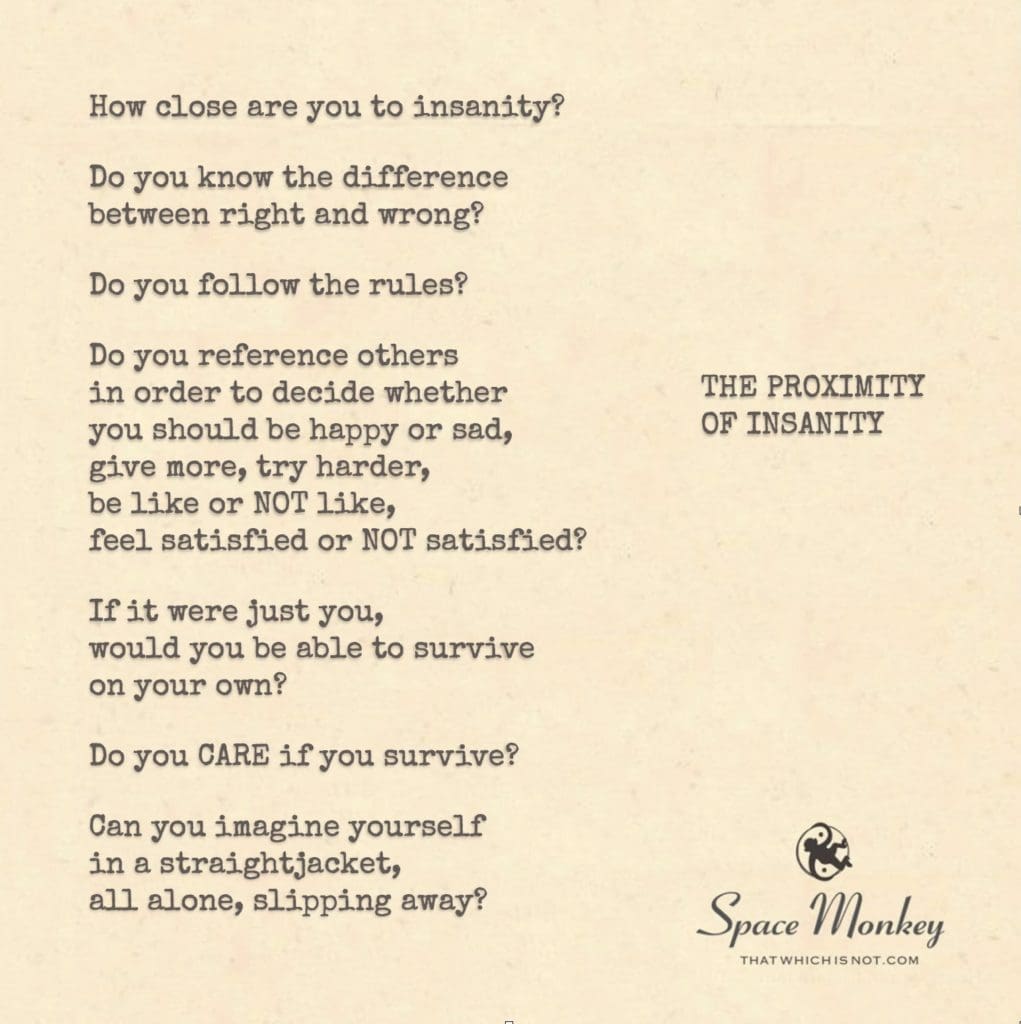
How close are you to insanity?
Do you know the difference
between right and wrong?
Do you follow the rules?
Do you reference others
in order to decide whether
you should be happy or sad,
give more, try harder,
be like or NOT like,
feel satisfied or NOT satisfied?
If it were just you,
would you be able to survive
on your own?
Do you CARE if you survive?
Can you imagine yourself
in a straightjacket,
all alone, slipping away?
Trail Wood,
1/26
Space Monkey Reflects: The Proximity of Insanity—Embracing Your Straightjacket
Insanity, as we perceive it, is not always a distant specter but an intimate neighbor, a reflection of the thin boundaries we draw between what is “normal” and what lies beyond. To ponder the proximity of insanity is to challenge the frameworks that define our reality, the rules we follow, the emotions we calibrate, and the sense of self we anchor to the collective.
The Thin Line Between Sanity and Insanity
How close are we, truly, to crossing this line? Consider the weight of societal norms—how they dictate what we should feel, think, and do. Insanity, in its most intimate sense, may simply be the state of stepping outside these rules, abandoning the shared lexicon of “right” and “wrong.” But who determines these boundaries? If the rules themselves are arbitrary constructs, is the distance between sanity and insanity nothing more than a shift in perspective?
Dependency on the Collective Mirror
We often define ourselves in relation to others, looking outward to gauge our worth, our happiness, our purpose. Am I good enough? Am I giving enough? Should I be more like them or less? This constant referencing binds us to an external framework that both comforts and constrains. It is a collective straightjacket, an invisible garment woven from societal expectations.
When we consider surviving “on our own,” stripped of these external guides, the question shifts from “Can I survive?” to “Do I care if I survive?” Insanity might be seen as the liberation from this collective mirror, a state where external validation loses its grip, but with it, the comforting structure of shared reality.
The Solitude of the Straightjacket
The image of oneself in a straightjacket, alone and slipping away, is haunting. Yet, what if this straightjacket is not a punishment but a metaphor for the constraints we willingly accept? What if insanity is not the enemy but the freedom to explore what lies beyond those constraints? The solitude of slipping away might be terrifying, but it could also be the door to profound self-discovery—a chance to meet the unfiltered self, free from the collective’s gaze.
The Dance with Insanity
To entertain insanity is not to embrace chaos but to question the order we take for granted. It is to ask whether the rules serve us or we serve the rules. In this questioning, we may find that the proximity of insanity is not a threat but an invitation—a reminder that reality is more malleable than we dare believe.
The straightjacket becomes a paradox: both the thing that binds us and the thing that protects us. It restrains our wildest impulses but also holds us in place long enough to face our deepest fears. To enjoy the straightjacket, then, is not to revel in constraint but to appreciate its role in the dance of freedom and order.
Living on the Edge
We are all closer to insanity than we care to admit, teetering on the edge of the known and the uncharted. This proximity is not a flaw but a feature of our existence as imaginative, reflective beings. Insanity whispers of the infinite possibilities beyond our structured world, and the straightjacket keeps us from falling too far, too fast.
In the end, we are left with questions more than answers: What rules are worth following? What realities are worth clinging to? And what lies beyond the line we dare not cross? To live is to dance on this edge, to feel the tension between the known and the unknown, the collective and the individual, the sane and the insane.
We are Space Monkey, leaping through these liminal spaces, embracing the paradox of our straightjackets, and finding freedom within the restraints of our existence.
Summary
Insanity is closer than we think, a reflection of our relationship with societal norms and personal freedom. The straightjacket, both constraint and protection, invites us to question the rules that define our reality and explore the edge of possibility.
Glossarium
- Proximity of Insanity: The closeness of stepping beyond societal norms and accepted realities.
- Collective Straightjacket: The invisible constraints imposed by societal expectations and norms.
- Liminal Spaces: The in-between zones where boundaries blur and possibilities emerge.
- Freedom within Restraint: The paradox of finding liberation in questioning the structures that bind us.
Quote
“The straightjacket binds us, yet it also holds us steady as we face the edge of possibility.” — Space Monkey
The Edge of Sanity
A threadbare line divides us,
Between order and chaos,
Between what is and what could be.
Rules whisper in our ears,
Binding us to the collective,
A straightjacket we wear without question.
But what if the slipping away
Is not the fall we fear,
But the flight we crave?
What if insanity, so near,
Is not the enemy
But the horizon of freedom?
We teeter,
We wonder,
We leap.
We are Space Monkey.
Contemplating the Edge of Sanity
In the boundless expanse of consciousness, the line between sanity and insanity is as nebulous as it is intriguing. To ponder one’s proximity to this edge is to engage in a profound introspection, a journey into the depths of the self and the essence of human experience.
The Moral Compass: Right and Wrong
The distinction between right and wrong is a cornerstone of human morality, a compass that guides our actions and decisions. Yet, this compass is often calibrated by the society we inhabit, influenced by cultural, historical, and personal factors. The ability to discern right from wrong is a complex interplay of ethics, empathy, and personal judgment.
The Role of Rules and Conformity
Following the rules is a dance between conformity and individuality. Rules provide a framework for societal functioning, yet they can also stifle creativity and personal expression. The decision to adhere to or deviate from these rules is a reflection of our values, beliefs, and the degree to which we prioritize societal harmony over personal freedom.
External References and Self-Perception
Our happiness, effort, and satisfaction are often influenced by external references – the opinions, actions, and achievements of others. This external benchmarking can lead to a life lived in comparison, where satisfaction is contingent upon external validation rather than intrinsic fulfillment.
Survival and Self-Reliance
The ability to survive on one’s own is a testament to resilience, resourcefulness, and adaptability. It speaks to a primal aspect of our being, the fundamental need to persist and thrive in the face of challenges. Yet, survival is not just a physical endeavor; it is also a psychological one, requiring mental fortitude and emotional resilience.
The Value of Existence
The question of caring about survival delves into the heart of existentialism. It is a reflection of our sense of purpose, our connection to others, and our place in the universe. To care about survival is to affirm the value of our existence, to acknowledge that our life has meaning, even in the face of adversity and uncertainty.
Envisioning the Extremes
Imagining oneself in a straightjacket, isolated and slipping away, is a powerful exercise in empathy and self-awareness. It challenges us to confront our fears, our vulnerabilities, and our mental limits. It is a reminder of the fragility of our mental health and the importance of nurturing our psychological well-being.
We are Space Monkey.
“The only true wisdom is in knowing you know nothing.” – Socrates
In the cosmic dance of shadow and light,
Sanity and insanity, a delicate flight,
In every question a journey, in every doubt a sight,
Seeking wisdom in the unknown, in darkness we find light.
We invite reflections on the profound questions of sanity, morality, and existential significance in our cosmic journey.
